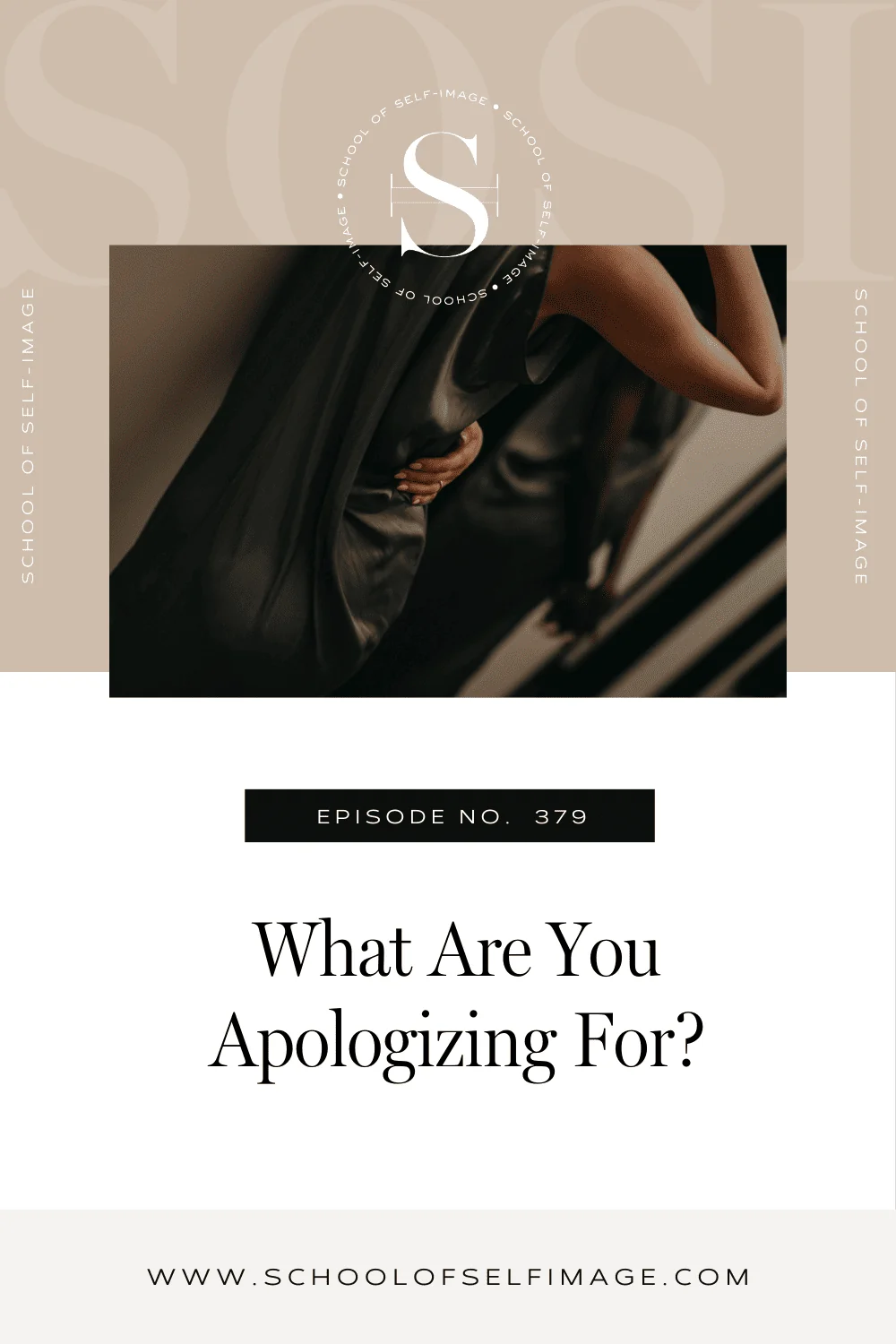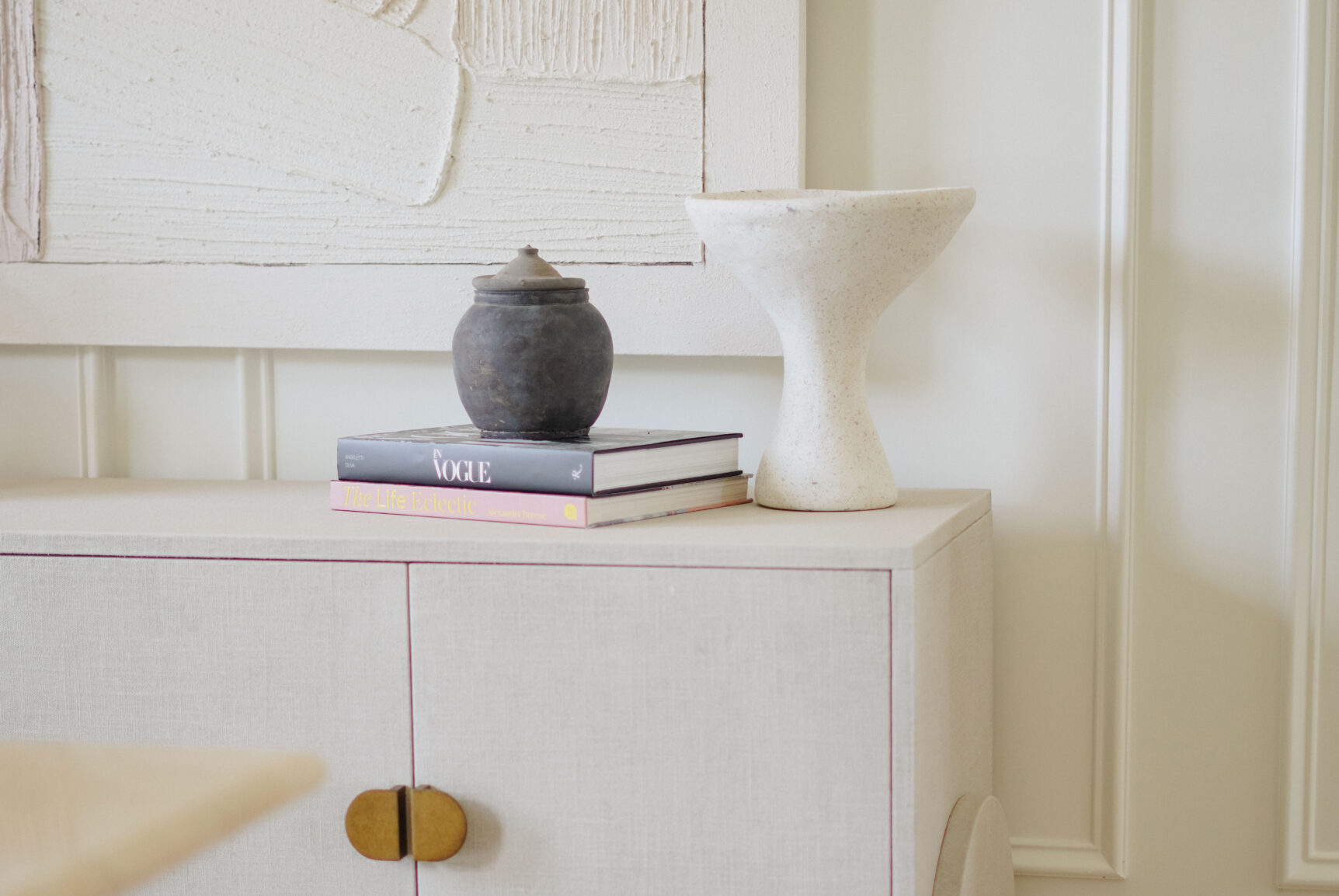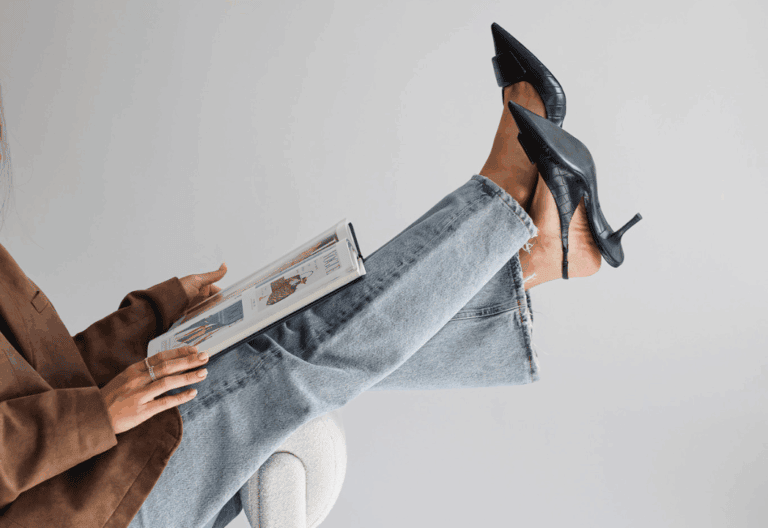

Ditching Apologies: Cultivating Self-Love and Confidence
Over-apologizing can become such a habit we don’t even realize we are repeating the behavior. School of Self-Image host Tonya Leigh discusses the tendency for women to over-apologize and the impact it can have on their self-esteem and confidence. She explores why women tend to over-apologize, including societal expectations and the desire to please others.
Tonya emphasizes the importance of recognizing when apologies are unnecessary and offers strategies for breaking the habit, such as replacing “I’m sorry” with “thank you” and focusing on solutions instead of apologies. She encourages women to take ownership of their space, needs, and voice without feeling the need to apologize constantly.
Tune in to discover how over-apologizing can impact your daily life and learn how to break free from this ingrained behavior.
Episode Details:
00:51 Over-apologizing in daily life
05:32 Apologizing for things beyond control
10:41 Recognizing over-apologizing habits
13:44 Swapping “sorry” for “thank you”
17:52 Refusing to apologize for being you
Useful Resources:
- Join the membership now: https://schoolofselfimage.com/join
- FREE resources: https://schoolofselfimage.com/resources/
- FREE download: https://schoolofselfimage.com/self-image-manifesto/
- Sign up for the weekly Edit: https://schoolofselfimage.com/edit
Connect with Master Life Coach Tonya Leigh:
- Website: https://schoolofselfimage.com/
- Instagram: https://www.instagram.com/schoolofselfimage
- Facebook: https://www.facebook.com/TonyaLeighOfficial
- TikTok: https://www.tiktok.com/@thetonyaleigh
Episode Transcript:
Benjamin Disraeli said, “Never apologize for showing feeling. When you do so, you apologize for the truth.” In this episode, I’m posing the question, what are you apologizing for? So let’s dive in.
Welcome to the School of Self-image, where personal development meets style. Here’s your hostess, master life coach, Tonya Leigh.
Hello, my gorgeous friends. Welcome to another episode. Now, I want you to imagine that I start this episode out like this, “Hey, I’m really sorry to interrupt your day, but I really want to share an important message with you.” Would you have confidence in the message? And would I have confidence in my own message when I start out with an apology? And yet so many people, especially women, tend to over-apologize for themselves.
Now, you may be thinking, “This doesn’t apply to me.” But chances are, it does because over-apologizing can become so ingrained in our daily lives that we don’t even realize that we’re doing it. Think about it. Have you ever apologized for asking for your meal to be fixed when it comes out wrong? Let’s say you order your steak medium rare and it comes out well done, and the waiter comes over to the table and you say, “Hey, I’m really sorry, but I asked for the steak to be medium rare and it’s clearly not.” Or have you ever apologized for being sick? “Hey, I’m sorry, but I have the flu and I won’t be able to make our date”? As if you somehow willed the flu upon yourself.
Or tell me if this one sounds familiar because I feel like a lot of us do this one. What about apologizing for saying no to something you just don’t want to do, even though you have every right to do so? So for example, someone asks you to lunch and you don’t want to go and you start out with an apology. “I’m really sorry.” And then you have all of these excuses versus just saying, “No, thank you.” What about your period? I used to apologize for my period. “I’m so sorry, but I’m on my period. I’m just not feeling well. I’m feeling gloomy.” And along the same lines, apologizing for having emotions.
It’s so interesting when I coach clients and they’ll come on a call and they’ll start crying and they’ll immediately start apologizing like, “I’m so sorry, I’m crying.” I’m like, “Why are you apologizing for feeling your human emotions?” We should never apologize for having emotions, and yet so many of us do.
What about apologizing for taking time to take care of yourself? “I’m so sorry, I have to cancel, but I need some time for myself.” Or what about apologizing for asking for clarity when you don’t understand something? “I’m sorry, but I don’t quite understand. Could you explain that again?” If you pay attention, you may find that you are over-apologizing on a daily basis. I know I have, so you’re not alone. But today we’re going to explore why women tend to over-apologize, the impact that it can have on us, and most importantly, how we can break free from this sorry syndrome. Because that’s what it feels like. It’s this syndrome of just constantly saying you’re sorry when you shouldn’t be apologizing.
So why do we do it? Well, the truth is there are several factors at play here. If you think about it, for a lot of us as young girls, we are taught to be polite, to be agreeable, and to prioritize the feelings of everybody else over our own. And this can lead to people pleasing where you’re constantly seeking approval and validation. And society also plays a role. We are bombarded with messages about the ideal woman who’s kind and gentle and avoids conflict. And this can create this subconscious pressure to over-apologize even when it’s not necessary, to avoid being seen as bossy or demanding or bitchy or difficult.
But what are the consequences of this constant apologizing? Well, unfortunately, it can have a huge, huge impact on our self-esteem and our confidence, and furthermore, our self-image. Because when we constantly apologize for things beyond our control, it can send a message to ourselves and to others that we somehow see ourselves as responsible for everything that goes wrong even if it’s not true. And that can lead to feeling inadequate, to having a lot of self-doubt, to having difficulty asserting ourselves in various situations. Because when you think about the definition of an apology, it means to be regretful of an offense or a failure.
And I want you all to really think about what are you apologizing for. Have you had an offense? Have you had a failure? If someone runs into you, and this used to happen to me a lot, someone would literally run into me and I would say, “I’m sorry.” But think about the subconscious messaging of that. When you apologize for things that aren’t your fault, you’re basically saying, “I’m sorry for having needs. I’m sorry for taking up space. I’m sorry for needing support.” You’re basically apologizing for being a human being, and that will chip away at your self-esteem. And the problem with that is when it comes to your self-image, you start to see yourself as unworthy. You start to see yourself as inadequate. You start to see yourself as small because you are perpetually using the word sorry to keep yourself small.
Imagine this, you’re at work and your colleague bumps into you and he spills coffee all over himself. What’s your first instinct? To apologize profusely? “I’m so sorry. Oh my gosh, are you okay? Is there anything I can do for you?” While offering help and expressing concern is kind, the constant barrage of apologies can send this subtle message both to yourself and to other people. It can imply that you feel responsible for everything that happens around you, even when it’s completely out of your control.
Here’s another scenario. You’re at a social gathering and you have an idea to share during a conversation. But before you even get a chance to speak, you preface it with an apology. “I’m so sorry to interrupt you, but I just overheard that you love art and I heard about this great exhibit that’s coming into town.” You didn’t have an offense. That wasn’t a failure. Why are you apologizing? And yet, over time, this habit, and it really is a habit, can chip away at your self-esteem. It can make you feel like you’re constantly walking on eggshells, afraid of making any mistake no matter how small and no matter if it can be someone else’s mistake that you’re apologizing for.
For example, asking for your food to be fixed. That wasn’t your fault. You ordered what you ordered, they brought out the wrong thing, and yet you’re apologizing for their mistake. And so what happens is you begin to doubt yourself, your own judgment, your abilities, questioning whether you deserve success or happiness. But over-apologizing is harmful. It can undermine your value, your voice, and your presence. It downplays the importance of your contribution and makes you sound hesitant or unsure of yourself. Remember, you have valuable thoughts and ideas to share. You are deserving of taking up space. You are worthy of support and love. But by constantly apologizing, you’re diminishing your own voice and you’re holding yourself back from fully expressing yourself. I know this because I used to apologize for almost everything.
I would apologize for taking my time. So for example, if I was in line and I was taking my time to order something and the line was growing behind me, I would turn around and apologize that I was asking for time. I’ve been known to apologize for my optimism because I realized that it made a lot of people uncomfortable. And sometimes apologies, it’s the energy of what you’re saying. It feels like an apology. So for example, I might say things like, “Yeah, I’ve just been working on myself a lot. I really have come a long way. And yeah, I am happy most of the time, but back in the day I really, really struggled.” It’s the energy of what I was saying. It was like, “I’m so sorry that I’m so happy right now.”
Equally, I’ve apologized for bad days, right? “I’m so sorry, but I’m just having a really bad day. I’m really cranky.” I have apologized for people not doing their job. So an example is I paid someone to do tile work for me years ago, and clearly, it was not done well. And I remember apologizing to him like, “I’m so sorry, but this isn’t right and you’re going to need to fix it.” What was I apologizing for?
Now, fast-forward to present day, we had a meeting at the house that I’m building and the tile wasn’t right in the bathroom and I was just like, “Listen, we’ve got to fix this.” I just left out the, “I’m sorry” because it wasn’t my fault. I’m all for taking responsibility when it’s my responsibility, but I was taking on the world’s responsibility when I was over-apologizing no matter who was at fault, I just assumed I was. It was me. Let me fix it, let me apologize. Let me make everyone around me comfortable at my own demise.
And so I recorded this episode because I have a very clear understanding of the tendency, the habit of wanting to over apologize, and how detrimental it is. It’s just chipping away at our self-image. Again, it’s making us see ourselves as small. And you’re here to do extraordinary things. You cannot play small and have an extraordinary life. The two just don’t go hand in hand.
So what do you do? How do you break this habit? I’m going to share with you some of the techniques that have worked for me to break this habit because now I rarely apologize except when it’s warranted. Because sometimes you need to apologize. It’s important that you apologize when you are at fault. Whether you’ve made a mistake that you want to take responsibility for, maybe you have unintentionally hurt someone’s feelings, or you show up late and you really inconvenience someone. In those situations, I’m all for apologizing. But I would say 90 of what we apologize for, especially if you’re an over-apologetic, it’s not warranted.
So the first thing is you need to shine a light on this habit. You need to become mindful of your apologies. Notice when “I’m sorry” pops out of your mouth, especially in situations when you haven’t done anything wrong. Is it when you feel like you’re in someone’s way or perhaps it’s when you want to contribute to a meeting or maybe you feel like you’re inconveniencing someone while they’re doing their job? And even if you have a really close friend, you can enlist them to support you and gently pointing out when you are over apologizing and just begin to track it, just begin to notice it.
Then you want to dig deeper. Why the constant apologies? Really look at what this is all about. Is it just a filler word that you use? Maybe it fills an awkward silence or stems from anxiety. Sometimes we get anxious and we’re like, “I got to say something in this moment,” and “I’m sorry” pops out of our mouths. Maybe it’s a lack of competence in certain situations. But understanding your why behind the apologies will help you to identify the situations where you could use some alternative phrases instead. Or it may help you uncover a belief that you need to work on so that you can show up confidently in situations.
And then this one has been huge for me. I don’t know who suggested did this to me years ago, but I’m forever grateful that they did. I remember someone suggesting that you swap sorry for thank you. So whenever you’re tempted to say, “I’m sorry,” try replacing it with “Thank you.” So let me give you some examples. Instead of saying, “Sorry for being late,” you can try, “Thank you for your patience. Thank you for your understanding.”
“Sorry for the late notice” can become, “I appreciate you making time despite the short notice.” Instead of, “I’m so sorry for complaining,” you can say, “Thank you for listening to my concerns.” Instead of saying, “I’m sorry for that mistake,” you can say, “Thank you for catching that. I really appreciate it.” And then you can expand your sorry vocabulary to other words. So maybe it’s, “Excuse me” or “Pardon me,” or “Oops,” like, “Oops, I didn’t see you standing there.”
Another really helpful tactic is to focus on solutions, not just apologies because everyone makes mistakes. And genuine apologies are essential when warranted. However, for minor mishaps, don’t go to, “I’m sorry.” Instead, shift your focus to solutions. So for example, instead of saying, “I’m sorry that happened,” you can say, “I understand your frustration. Here’s what I can do to fix the problem.” Instead of saying, “I’m so sorry, I missed that,” you can say, “Thank you for bringing this to my attention. I’m going to get right on it.” Instead of saying, let’s say, “I’m so sorry I dropped the ball on that,” you can say, “You know what? This didn’t go as planned and I’m committed to making it right.”
The last suggestion I can offer you is to begin to ask questions with confidence instead of apologizing because sometimes sorry just becomes a crutch to get someone’s attention. Phrases like, “Sorry, but I have a question” can unintentionally downplay your voice. Instead, try assertive alternatives to initiate a question. So, examples. Instead of saying, “Sorry to bother you, but…” Try, “Is now a good time to talk?” Instead of, “Sorry for interrupting, but…” Try, “Can I add to this point?” Or, “I have an idea” or, “I have something I want to share.” Instead of saying, “Sorry for getting in the way, but..” Say, “May I squeeze past you?” Instead of, “Sorry, but I have a question,” you can say, “Do you have a moment for me to ask you a question?”
Can you see the difference? One comes from insecurity, comes from self-doubt. The other one comes from a place of confidence, a place of self-esteem. And while I want you to pay attention to when you may be over-apologizing, a way to really start this practice is in your email and texting communication because you have a moment when you’re typing something out to take a moment and reflect. So banish “I’m sorry” from this texting, or email communication unless it’s truly warranted. And if it’s truly warranted, you probably need to get on a phone call and clear things up. Because in face-to-face communication, sometimes “I’m sorry” may just fall out of your mouth so used to saying it, but this will allow you to begin to practice with really thoughtful communication.
These little small tweaks in your communication style, you’ll start to feel a shift. You’ll start to, number one, become more aware and its effect on you. And as you begin to tweak your communication and stop over-apologizing, you’re going to have this newfound confidence, this assertiveness. And not only will you notice, but other people are going to feel it as well.
Now, I want you all to realize this isn’t about becoming some cold, unfeeling robot. It’s about you taking ownership of your space, your needs, and your voice. It’s about you recognizing your worth and refusing to apologize for simply being you. Now, oftentimes we think, “But what if someone becomes offended?” And here’s the truth, the people who truly love you and care about you will not be offended by your newfound confidence and your assertiveness. In fact, they probably want that for you. And they’ll appreciate the authentic and the empowered you.
So my friends, let’s ditch the unnecessary over-apologizing and begin to cultivate a garden of self-love and confidence because you are worthy, you are deserving, and you have the right to take up space in this world without saying sorry for it. Have a beautiful, beautiful week, my friends. And I will see you on next week’s episode. Cheers.
I used to think happiness was a fairytale, forever just out of reach. I felt stuck a lot of the time, helpless, and like I was constantly failing at life. But then I discovered a simple shift, or three, that changed everything. Now I help women like you create their own Powerfully Ever After. In my free Masterclass, you'll learn the secrets to unshakable desire, fearless action, and finally believing in yourself. You deserve a life you love. So stop waiting and start creating. Watch the Masterclass and unleash your inner powerhouse. You can go to sosistaging.wpenginepowered.com/after and watch it now.




